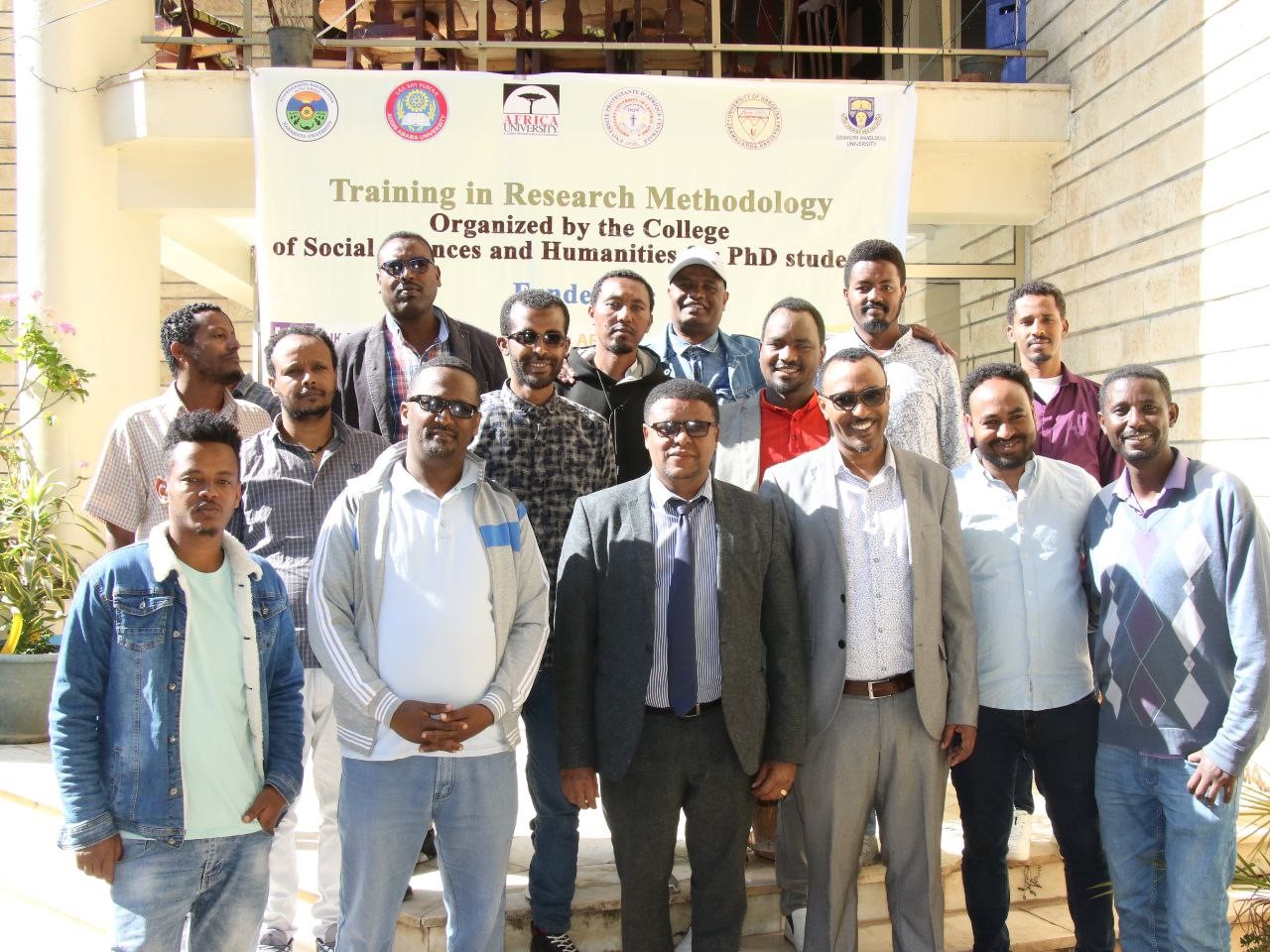Haramaya University striving to enable PhD students to conduct problem-solving research.
Haramaya University’s College of Social Science and Humanities (CSSH) conducted training on research methodology for PhD students at its resource center on December 12–14, 2022.
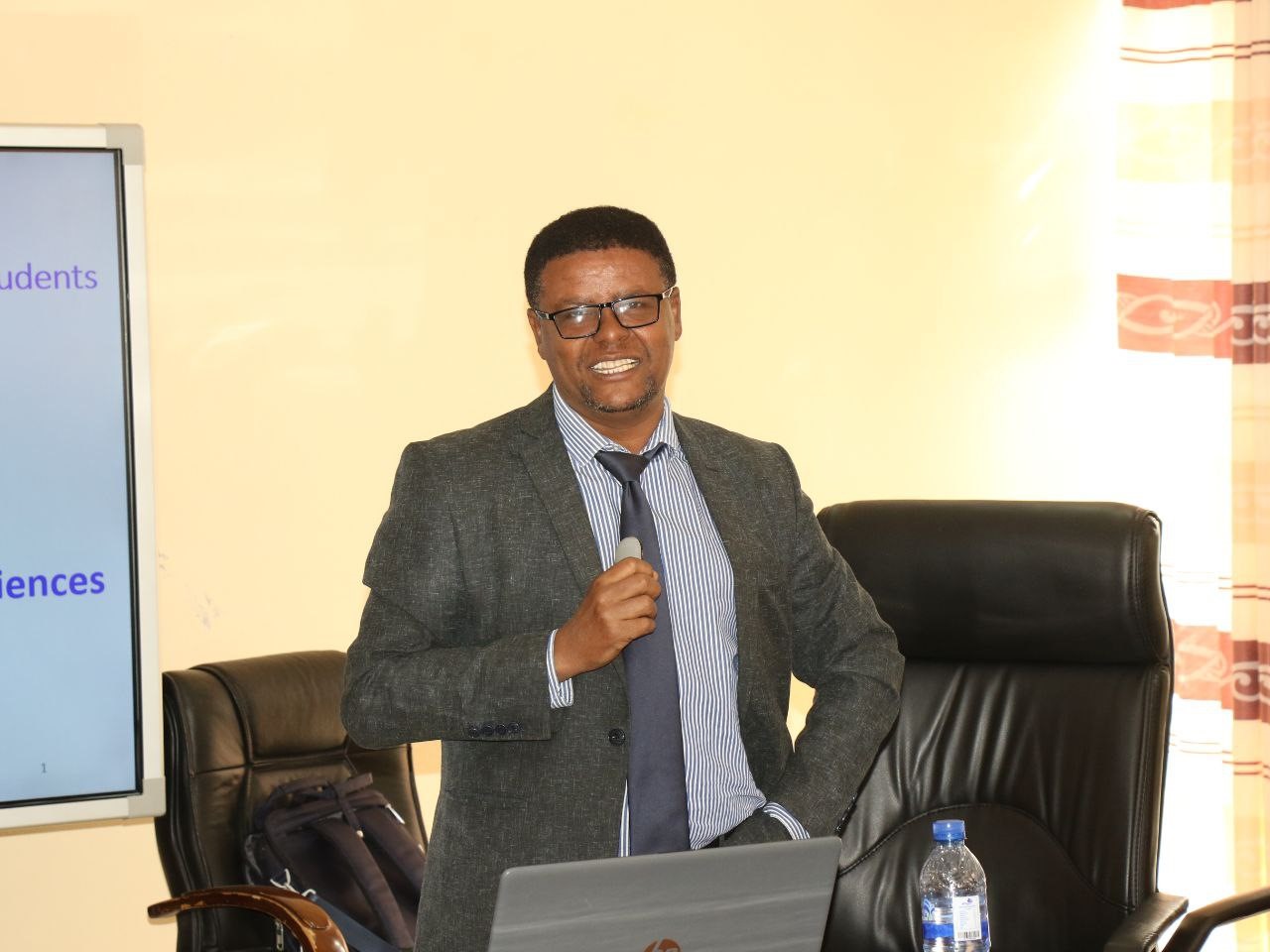
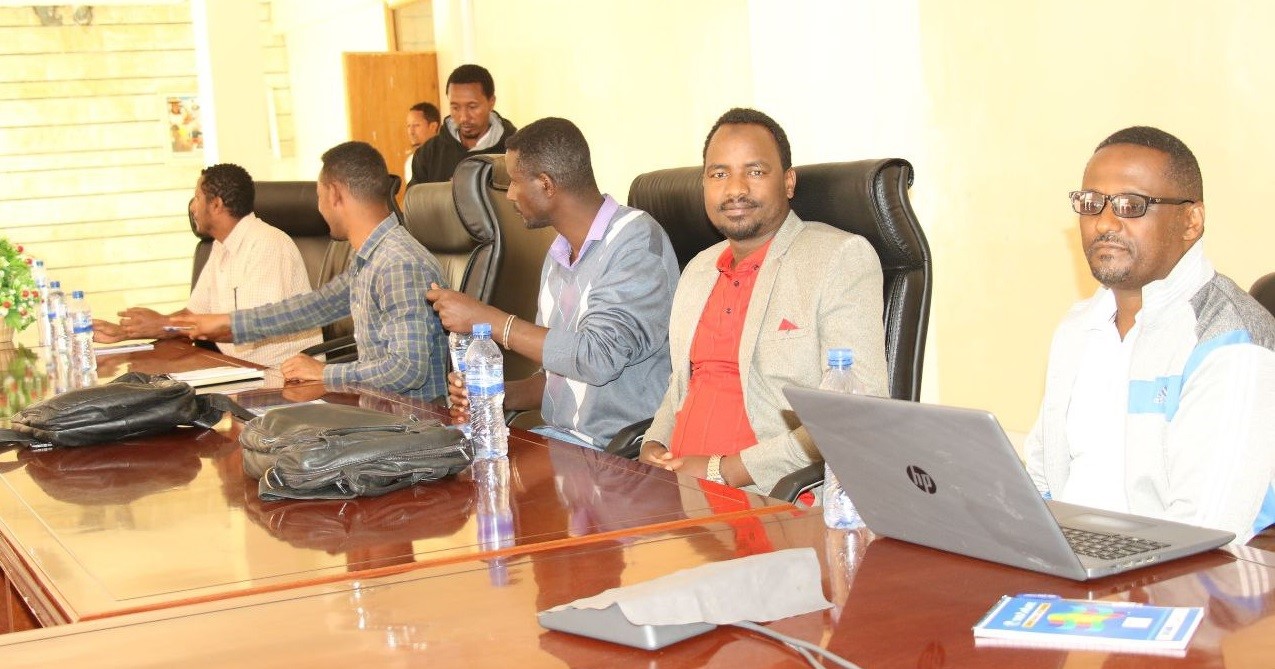
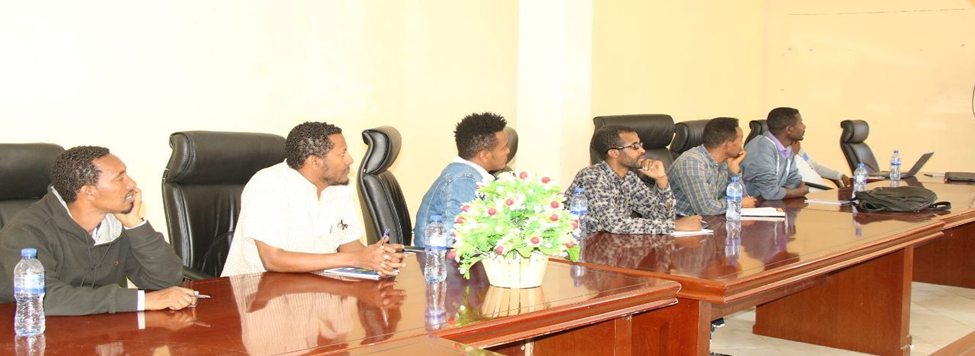
While the training is a part of a project funded by the African Research Universities Alliance (ARUA) and UK Research and Innovation (UKRI), its objective is to develop students’ capacity for conducting quality research and introduce them to qualitative, quantitative, and mixed research methods, specific tools, and techniques of data collection, organization, and analysis.
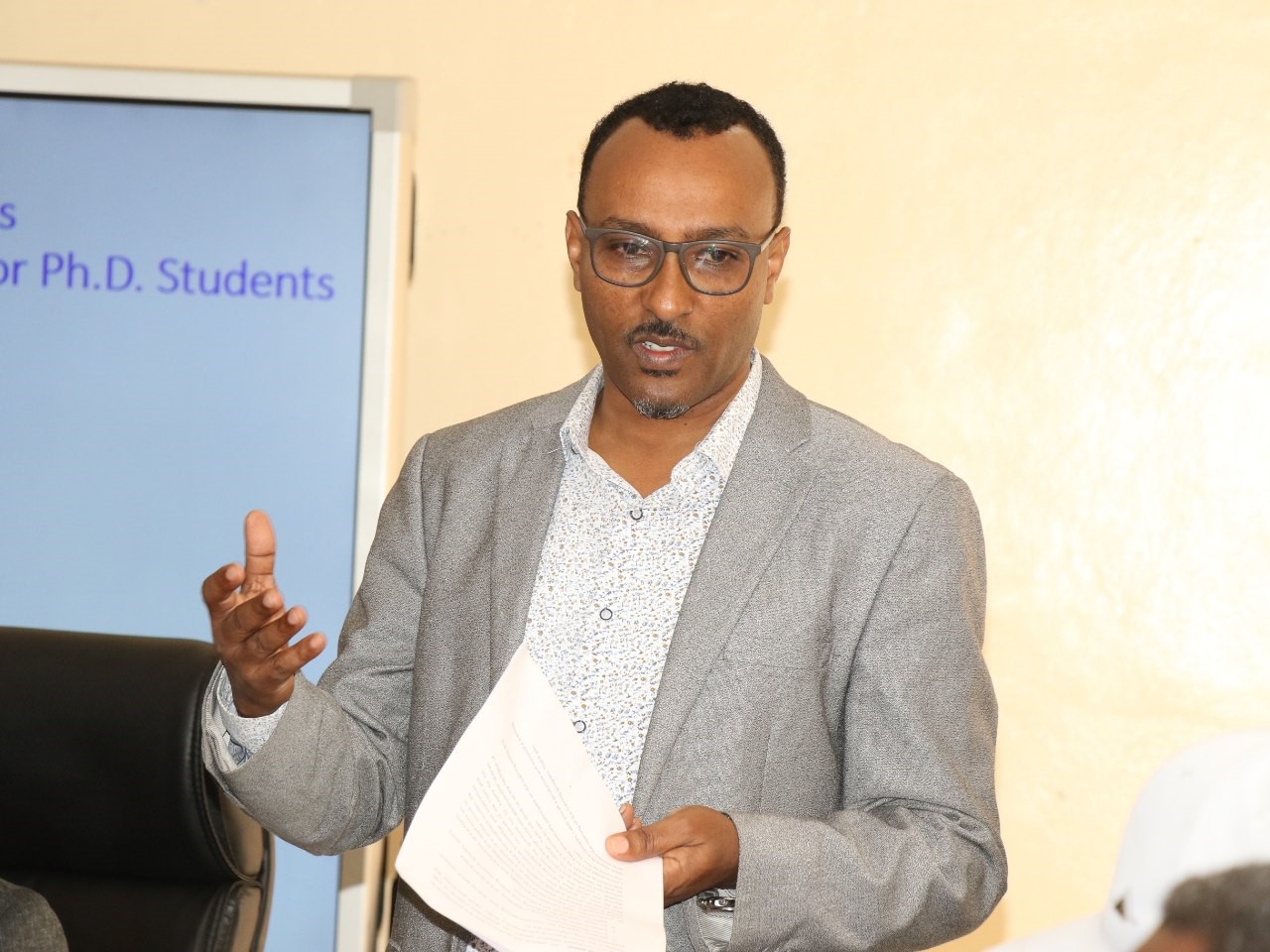
Concerning this, Dr. Adinew Tadesse, Dean of the College of Social Science and Humanities, said in his opening remarks at the training that Haramaya University, via the College of Social Science and Humanities, is implementing a three-year capacity building project jointly with the Institute for Peace and Security Studies (IPSS), Addis Ababa University (AAU), and five other African universities. Started a year ago, the project provided research grants to ten (10) PhD students in peace and development studies and article and policy brief publication grants for five PhD students and five members of the CSSH colloquium and conducted one face-to-face research methodology training, one webinar training in scientific writing and publishing, and one review workshop, according to Dr. Adinew.
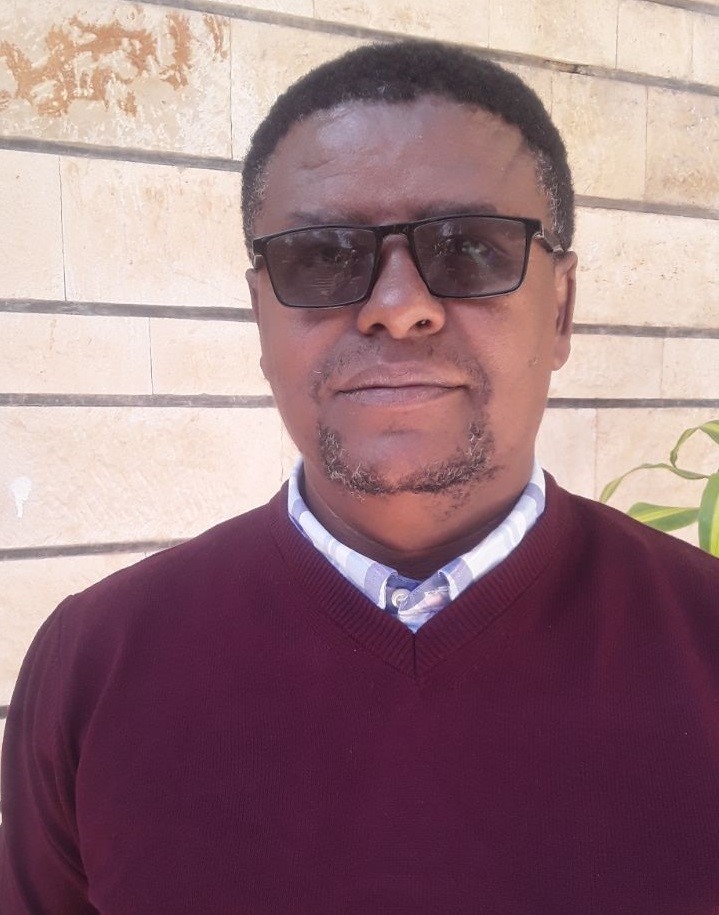
Stating that the training is well organized as it is a project, Dr. Feyera Dinsa, the director of the postgraduate program and the trainer of the research methodology for PhD students, said that PhD students should not conduct research works for just degree requirements and shelf decoration, but they should exert their maximum efforts to conduct applicable and problem-solving research that can be published in reputable international journals read world-wide so that they can be recognized internationally. To fulfill this, the training plays irreplaceable role for PhD students because it enables them to acquire additional understanding, skills and to discuss the problems that they face when they perform the practical research activity, as Dr. Feyera.
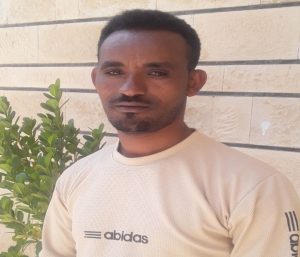
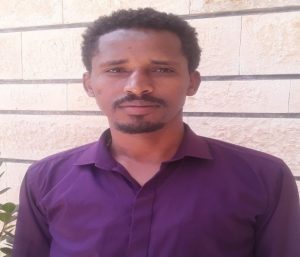
The training participants, for their part, said that the training is very helpful to them in performing applicable studies. For example, Dehinasew Shemelis and Mekuanint Tesfaw, PhD students in peace and development studies, say that the training helped them bring up and discuss problems that they faced in their actual research practice.
Witnessing that Haramaya University is rich in intellectuals and infrastructure and has a very wonderful and attractive campus surrounded by a hospitable community unlike his expectations, Mr. Mekuwanint Tesfawu, who is from Wollo and attended Woldiya University, appreciated the training and in the same way invited other students to join Haramaya University if they want quality education.
